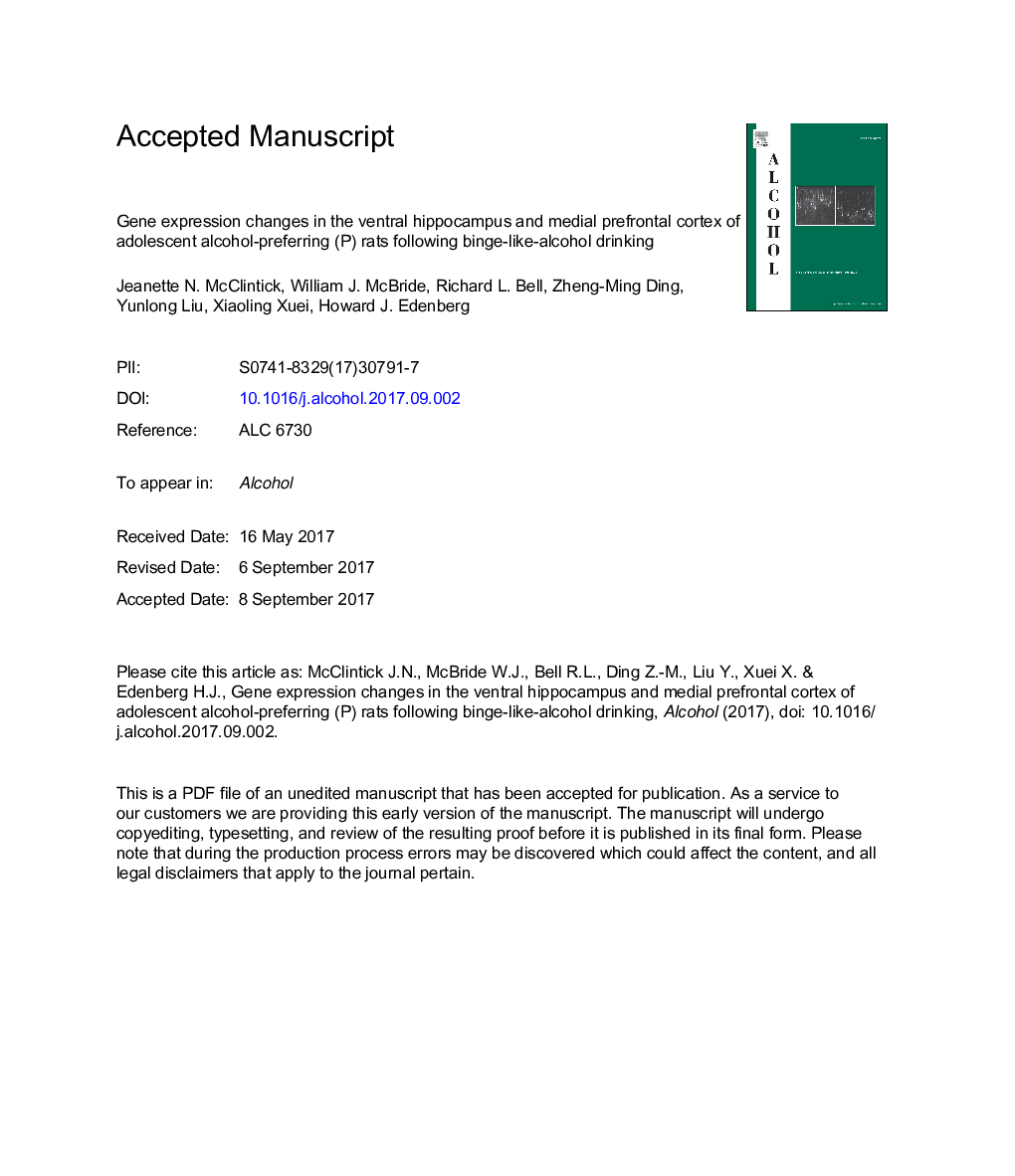| Article ID | Journal | Published Year | Pages | File Type |
|---|---|---|---|---|
| 7501451 | Alcohol | 2018 | 39 Pages |
Abstract
Binge drinking of alcohol during adolescence is a serious public health concern with long-term consequences, including decreased hippocampal and prefrontal cortex volume and deficits in memory. We used RNA sequencing to assess the effects of adolescent binge drinking on gene expression in these regions. Male adolescent alcohol-preferring (P) rats were exposed to repeated binge drinking (three 1-h sessions/day during the dark/cycle, 5 days/week for 3 weeks starting at 28 days of age; ethanol intakes of 2.5-3Â g/kg/session). Ethanol significantly altered the expression of 416 of 11,727 genes expressed in the ventral hippocampus. Genes and pathways involved in neurogenesis, long-term potentiation, and axonal guidance were decreased, which could relate to the impaired memory function found in subjects with adolescent alcohol binge-like exposure. The decreased expression of myelin and cholesterol genes and apparent decrease in oligodendrocytes in P rats could result in decreased myelination. In the medial prefrontal cortex, 638 of 11,579 genes were altered; genes in cellular stress and inflammatory pathways were increased, as were genes involved in oxidative phosphorylation. Overall, the results of this study suggest that adolescent binge-like alcohol drinking may alter the development of the ventral hippocampus and medial prefrontal cortex and produce long-term consequences on learning and memory, and on control of impulsive behaviors.
Keywords
FDRRPKMDRNPAGMPFCCeABACAlcoholalcohol-preferringreads per kilobase per million readslong-term potentiationLTPperiaqueductal grayBinge drinkingBlood alcohol concentrationprefrontal cortexmedial prefrontal cortexfalse discovery ratenucleus accumbens shelldorsal raphe nucleusHippocampusventral hippocampus
Related Topics
Life Sciences
Biochemistry, Genetics and Molecular Biology
Biochemistry
Authors
Jeanette N. McClintick, William J. McBride, Richard L. Bell, Zheng-Ming Ding, Yunlong Liu, Xiaoling Xuei, Howard J. Edenberg,
